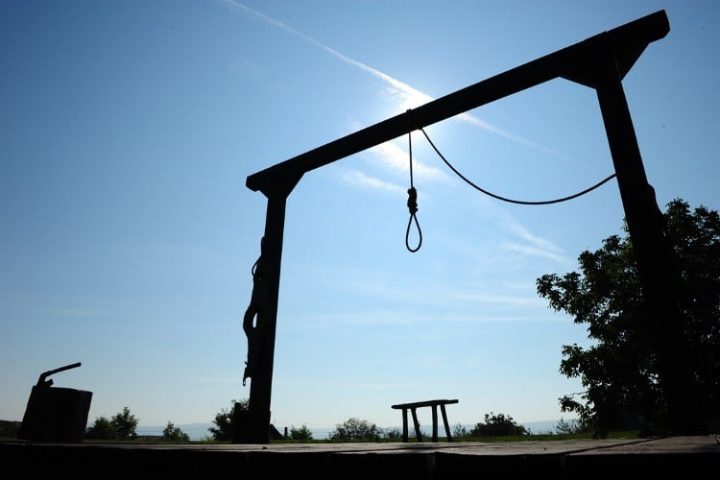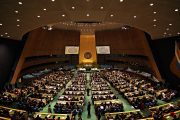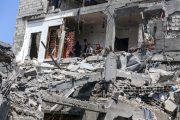
SINGAPORE —Iran has been plagued by weeks of unrest after a 22-year-old Kurdish woman, Mahsa Amini, died in police custody after being arrested by the Iranian morality police. Recently, the beleaguered country saw its morality police force suspended, following the nationwide protests. Also, the regime conducted public executions of protestors in efforts to deter more people from participating in anti-government demonstrations.
Officially termed the Guidance Patrol, the police unit has been present in major intersections and thoroughfares in Iranian cities for years, detaining those deemed in violation of the Islamic Republic’s stringent religious dress codes. The patrols appeared to vanish from Tehran’s streets soon after nationwide protests over the death of Amini, who slipped into a coma after being detained for her attire.
The protests have morphed into a popular revolt by incensed Iranians from all walks of life, posing as one of the most serious threats to the legitimacy of the clerical leadership since the 1979 revolution.
“The Guidance Patrol has nothing to do with the judiciary; it was suspended by the same institution that formed it in the past,” the semi-official Iranian Labour News Agency said, quoting Chief Public Prosecutor Mohammad Jafar Montazeri.
These aforementioned remarks are not equivalent to an official disbandment of the unit. They do not reflect a key change in policy and did not pander to protesters’ demands to ditch compulsory religious dress codes altogether, or address grievances linked to civil liberties, governance, and the rule of law.
With codes for how women must dress still in order, suspending the Guidance Patrol also raises eyebrows about how the rules will be implemented, and whether an alternative system will be set up.
In a clear indication that public life and dress codes will still be sanctioned, Montazeri said, “of course, the judiciary continues to monitor behavior in the community.”
In separate remarks reported in the moderate Shargh newspaper, Montazeri revealed that the judiciary was preparing a draft proposal for amendments to how laws “pertaining to chastity and hijab” should be implemented, referring to the Arabic word used to describe religious modesty codes.
“Following recent events, the relevant bodies are looking for a prudent solution,” he said, elaborating that Iran’s parliament and the Supreme Council of the Islamic Revolution hope to reach a decision about the near future.
Rights groups have alleged that more than 400 people, including children, have been killed by security forces in the protests. Besides, the UN said that more than 14,000 people have been detained thus far for participating in the protests. Many of these detainees were charged of grave offenses that entail the death penalty.
Green and white Guidance Patrol minivans have frequently patrolled busy streets since 2006, particularly during the summer months, arresting passersby, mainly young women, regarded to be improperly dressed. Iranian officials have constantly slammed foreign countries, including the United States, of inciting protests and have pledged to persist in clamping down on dissent.
The regime’s repression includes supposed arbitrary detainments, sexual violence, overt use of torture, force, “disappearances,” and executions. Iran’s efforts are allegedly supported by Chinese artificial intelligence (AI) surveillance technology.
In December, Iran hanged a man in public who was accused of killing two members of the security forces, the judiciary’s Mizan news agency reported. This hanging marks the second execution related to anti-regime protests in less than a week.
“Majidreza Rahnavard was hanged in public in (the holy Shi’ite city of) Mashhad this morning… He was sentenced to death for ‘waging war against God’ after stabbing to death two members of security forces,” Mizan said.
Iran’s state media published footage of a man, whom they identified as Rahnavard, stabbing another man, who fell against a parked motorcycle, and then stabbing another person right after that.
Mizan said Rahnavard was arrested when trying to escape Iran 23 days ago. It added that his sentence was maintained by a higher court.
Activists on social media slammed the hanging of the 23-year-old Rahnavard as a “criminal act” by the clerical establishment to crush dissent.
Iran’s earlier hanging of another young man, Mohsen Shekari, arrested on the grounds of assaulting a security guard with a knife and blocking a street in Tehran during protests, has been lambasted by the United States and its allies.
The Iranian judiciary said Shekari was found guilty of fighting and drawing a weapon “with the intention of killing, causing terror and disturbing the order and security of society.”
Shekari was convicted November 1 of moharebeh — “waging war against God” — under Iran’s Islamic sharia law, said Mizan, adding that he appealed the ruling but the Supreme Court upheld it on November 20.
Rights groups have claimed that Shekari was tortured and forced to confess.
Amnesty International has said the Iranian authorities are pushing for the death penalty for at least 21 people in what it termed “sham trials designed to intimidate those participating in the popular uprising that has rocked Iran.”
An Iranian court recently sentenced five people to death by hanging for killing a Basij member. The Basij is a state-sanctioned volunteer force that is related to Iran’s feared Islamic Revolutionary Guard Corps. The five sentenced to death were convicted of “corruption on earth,” one of the most serious crimes under sharia law in Iran.
Another 11 people, including three children, were handed long jail terms over the killing, judiciary spokesman Massoud Setayeshi told a news conference, stating that the sentences could be appealed.
Rights group Human Rights Activists News Agency claimed, as of December 11, 488 protesters had been killed, including 68 minors. It said 62 members of the security forces had also been killed. As many as 18,259 protesters are believed to have been detained, it added.
While the UN claimed the protests have cost more than 300 lives, a top Iranian state security body has said that 200 people, including members of the security forces, have died in the protests.
In November, the UN said it would investigate Iran for human-rights violations and urged the Islamic Republic to instantly cease its crackdown on dissent.
At present, Iran executes more people yearly than any nation other than China, according to Amnesty International.



